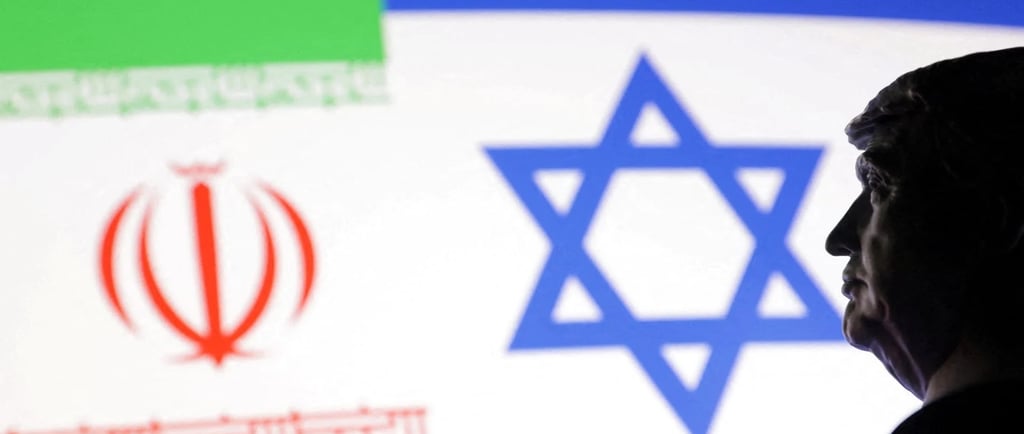How You Should React to Global Conflicts!
Learn how Christians can respond to global conflicts with wisdom and faith while maintaining inner peace. Discover biblical principles for handling world events without anxiety or fear.
CULTURE
6/24/20253 min read


The Endless Cycle of "World War III" Predictions
Have you noticed how often we hear that "World War III is starting now"?
Every time tensions rise in the Middle East or major powers clash, social media explodes with apocalyptic predictions. Yet here we are, still living our daily lives, still going to work, still loving our families.
This constant cycle of fear-mongering isn't just exhausting—it's spiritually harmful.
Why We Should Care About Global Conflicts
As Christians, we absolutely should care about wars and conflicts around the world. Here's why:
We're Called to Love Our Neighbors
When people suffer anywhere in the world, it affects the entire human family. The famous poet John Donne captured this beautifully: "No man is an island... any man's death diminishes me, because I am involved in mankind."
Jesus Commands Compassion
Our Savior calls us to have compassionate hearts. When children die in conflicts, when families are torn apart by war, when innocents suffer—these tragedies should move us to prayer and action where possible.
The Problem with Apocalyptic Anxiety
But there's a difference between healthy concern and unhealthy obsession.
The Fear Industry
Many content creators and news outlets profit from keeping us afraid. Fear generates clicks, shares, and engagement. The more apocalyptic the prediction, the more attention it receives.
This creates a cycle where we're constantly bombarded with "the end is near" messages.
Living in Constant Crisis Mode
When we live in perpetual fear of global catastrophe, we:
Become emotionally exhausted
Lose focus on our actual responsibilities
Miss opportunities to serve God in our daily lives
Develop anxiety that steals our joy and peace
A Biblical Approach to Global Events
So how should Christians respond to world conflicts and crises?
Focus on What You Can Control
Ask yourself: What can you actually do about international conflicts?
For most of us, the answer is limited. We can:
Pray for peace and those affected
Give to humanitarian causes
Vote according to our conscience
Share the Gospel in our communities
But we can't personally stop wars or prevent global conflicts.
Remember God's Sovereignty
Scripture reminds us that God is in control of world events. While we should care about suffering, we don't need to carry the weight of the world on our shoulders.
"Cast all your anxiety on him because he cares for you." (1 Peter 5:7)
Live Faithfully in the Present
C.S. Lewis, writing during the threat of atomic warfare, offered profound wisdom: If fear of catastrophe prevents us from living normal lives, the catastrophe has already won.
We should continue:
Working diligently
Loving our families
Serving our communities
Growing in faith
Enjoying simple pleasures
What Really Matters in Your Daily Life
Here's a perspective shift: How you treat your spouse today affects your marriage more than any Middle Eastern conflict.
How you parent your children, how you serve at church, how you love your neighbors—these daily acts of faithfulness matter more than your ability to predict world events.
The Power of Local Impact
Instead of getting lost in global anxiety, consider:
Volunteering at local charities
Supporting your church's missions
Mentoring young people
Caring for elderly neighbors
Being a light in your workplace
These actions create real, lasting change in ways that worrying about distant conflicts never can.
Finding Balance: Care Without Anxiety
The goal isn't to become indifferent to world suffering. It's to find a healthy balance between:
Caring - Praying for those affected, supporting relief efforts when possible, staying informed about major events
Living - Continuing our daily responsibilities, maintaining relationships, pursuing our calling, trusting God's plan
Practical Steps for Healthy Engagement
1. Limit News Consumption
Set specific times for checking news rather than constant scrolling. Choose reliable sources over sensationalist content.
2. Focus on Prayer
When you feel overwhelmed by global events, turn to prayer. God can handle what we cannot.
3. Invest in Relationships
Pour energy into the people God has placed in your life rather than debating strangers online about world events.
4. Serve Locally
Channel your concern into local action where you can make a real difference.
5. Study Biblical Prophecy Wisely
If you're interested in end times, study Scripture carefully rather than following every online prediction.
Conclusion: Peace in Turbulent Times
Global conflicts will continue until Christ returns. Wars, rumors of wars, and international tensions are part of living in a fallen world.
But as Christians, we have something the world doesn't: the peace of God that surpasses understanding.
We can care about global suffering without being consumed by global anxiety. We can stay informed without becoming neurotic. We can pray for peace while living faithfully in the present.
Remember, your faithfulness in small, daily acts of love may have more eternal impact than any global political event.
Let's care about the world while trusting the One who holds the world in His hands.
What's one way you can serve locally while praying for global peace? Start there, and let God guide your heart toward healthy engagement with world events.
